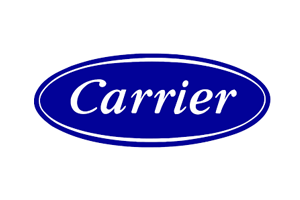FAQs
Service Champs Heating & Air
Have an HVAC-related question? We have the answer. Check out these FAQs and give us a call today for more information!
How often should I change my HVAC air filter in the north Fort Worth/Alliance area?
We've found that keeping filters fresh is crucial in Texas's dusty, pollen-heavy climate-typically every one to three months, depending on filter type and household conditions. Not only is this good for your HVAC system, but according to Synergy Companies, regular HVAC maintenance, including filter changes and system inspections, can also save homeowners 5% to 15% on annual energy bills. Reach out to Service Champs Heating & Air today for more helpful tips about heating in Haslet, TX and beyond.What are the signs my AC needs professional attention?
Watch for weak airflow, uneven cooling, high energy bills, strange sounds, or ice on refrigerant lines–these are common local issues. Reach out to Service Champs Heating & Air if you notice these problems and get help with AC or heating Haslet, TX homeowners can count on.When is it time to repair versus replace my HVAC system?
We've found that owning a system older than 10-12 years, facing frequent breakdowns, inefficient performance, or rising utility bills often justifies replacement over continued repairs. Reach out to us today for a free estimate if you need a new system for AC and heating in Haslet, TX or beyond.What's the ideal thermostat temperature setting for North Texas summers and winters?
Most locals find 74 to 76 degrees Fahrenheit in summer and 65 to 68 degrees Fahrenheit in winter strike a good balance between comfort and efficiency. Sudden swings of more than 5 degrees Fahrenheit, however, can spike energy costs. For more helpful tips or reliable help with heating in Haslet, TX and the surrounding regions, reach out to Service Champs Heating & Air today.How often should I get my HVAC system professionally maintained?
Twice-yearly tune-ups—spring for cooling and fall for heating—are recommended to maintain efficiency and prevent costly breakdowns. You can get started with quality maintenance or AC repairs in Haslet, TX and beyond by reaching out to us for a free estimate!Why is my AC blowing warm air instead of cold?
Possible causes include dirty filters, low refrigerant, blocked vents, or a malfunctioning compressor; professional diagnosis is best. Service Champs Heating & Air can get your system back up and running quickly with quality repairs for AC and heating Haslet, TX families rely on.How long does a typical residential HVAC system last in DFW?
With proper care, a system usually lasts 10 to 15 years-but maintenance, usage, and environment can extend or shorten that lifespan. If you need a new HVAC system, reach out to Service Champs Heating & Air today and learn what makes us the first choice for heating in Haslet, TX and beyond.How do I deal with hot or cold spots in my home?
Hot/cold zones often stem from poor duct insulation, bad air distribution, or incorrect system sizing. A home evaluation can pinpoint the solution. Reach out to us today if you notice this problem and learn what makes us the leading choice for heating in Haslet, TX and the nearby areas.What does SEER mean and why does it matter when choosing a system in Texas?
SEER (Seasonal Energy Efficiency Ratio) measures cooling efficiency. A higher SEER rating means lower energy bills, which is crucial for the DFW Metroplex summers. Reach out to Service Champs Heating & Air today to learn more about SEER and find out what makes us the source for heating Haslet, TX chooses first.Can a family-owned HVAC company do quick, fair repairs around Alliance, Haslet, and Saginaw?
Absolutely! As the first choice for heating in Haslet, TX and the surrounding areas, Service Champs Heating & Air is proud to offer fast, respectful service with fair pricing, using fully stocked trucks and a focus on responsible, friendly service. We service these local communities and beyond!





